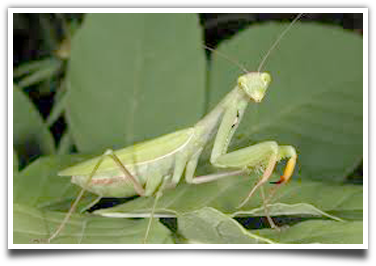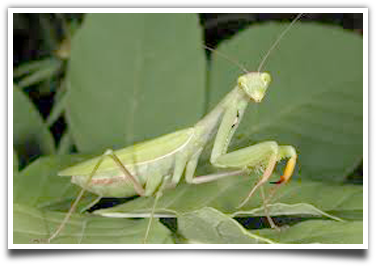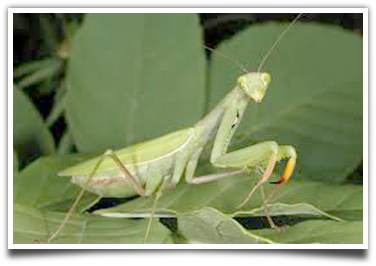Praying Mantis Facts on Predation
Praying mantises are known to feast on any type of insects. Sometimes, they even eat their own kind. Based on praying mantis facts, these insects never eat plants or crops and this is why they are perfect for pest control. But there are only a few people who actually know the predatory behavior that these mantises have. Many people often mistake praying mantises to be plant eaters just like other insects in the garden.
When it comes to predation, praying mantises can be called experts. First, they use their abilities in camouflage to blend into the environment. This will create the illusion to their possible prey that there are no apparent predators that may eat them. As their target prey gets closer, they position their forelegs to prepare for the catch. When the prey gets within their reach, the mantis extends their forearms and grasps it.
Because of their manner of predating, they are called ambush predators and they are very successful in this type of approach. But their predatory behavior is not just limited to tiny moving insects. Their appetite can attract them to divulge in bigger prey which goes beyond insects. Some mantises have been found to prey on amphibians such as frogs and reptiles such as lizards and snakes.
What You Should Know About Praying Mantis Praying mantis are insects with over 1,800 species all over the world. This insect’s most distinctive feature is their grasping legs in front that look as if they are praying. These legs are designed to better seizing and holding their prey. Praying mantises are harmless; in fact they are of great help to farmers in eating insects that are destroying the crops which is one of the praying mantis facts that are truly beneficial. Mantises lay eggs in masses where More... Mating Process of Praying Mantises Have you ever wondered how praying mantes mate? Praying mantises are most popular for the females’ practice of eating their mates after breeding. Also, the praying mantis is known for its extraordinary upright position posture, in which it appears as if it’s praying. In general, the body of a praying mantis is composed of three sections, namely the head, the abdomen and the thorax. Another interesting fact is that the praying mantis is the one and only insect whose head More... Feeding a Praying Mantis When learning how to feed your praying mantis, you should see to it that there is already a selected habitat for such feeding. You can do this inside the cage for the mantis, though you need to be sure that it is not a too large space with unreachable areas for the insect to capture and feed on its prey. Either purchase or catch a number of tiny live insects. For the most part, pet stores have a stock of More... Life Cycle of Praying Mantis The most interesting praying mantis facts are related to its life cycle. The life cycle of a praying mantis begins in reproduction when a male and a female praying mantis would mate. During this process, scientists have observed that female mantises could cut the heads of the male before they actually mate. But in the wild, may mantis species are known for elaborate dance courtships. The male will then hop on to the back of the female to lodge his More... Praying Mantis Facts for Kids If you ask most kids, they will tell you that they get scared of praying mantises because of their appearance. But if you teach these kids praying mantis facts, they can get fascinated by these insects and they will learn more about the natural life cycle in the environment. The first few details that kids should know about these praying mantises are about the appearance. These insects have their forelimbs folded in front of their bodies which resemble the praying More...
|




